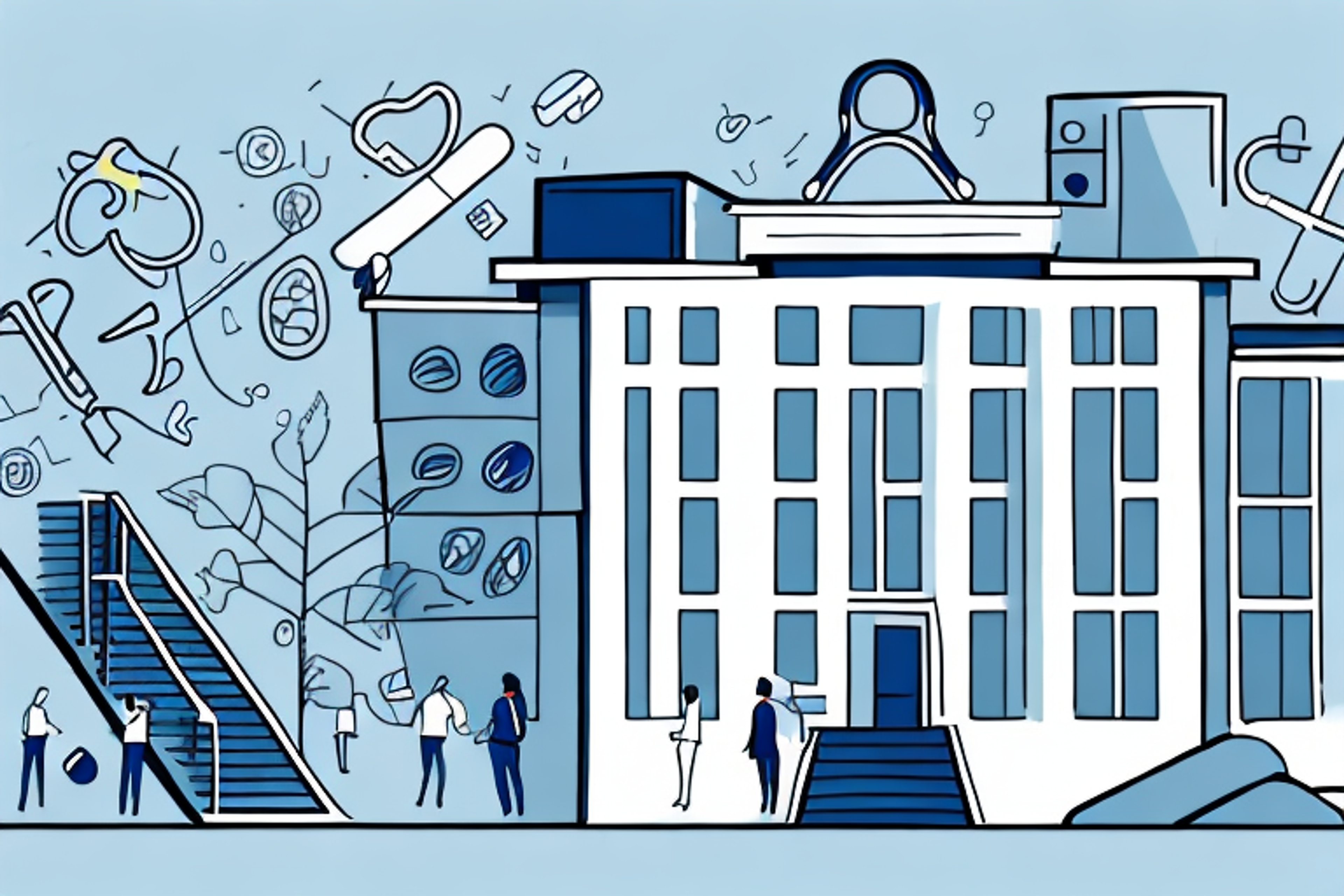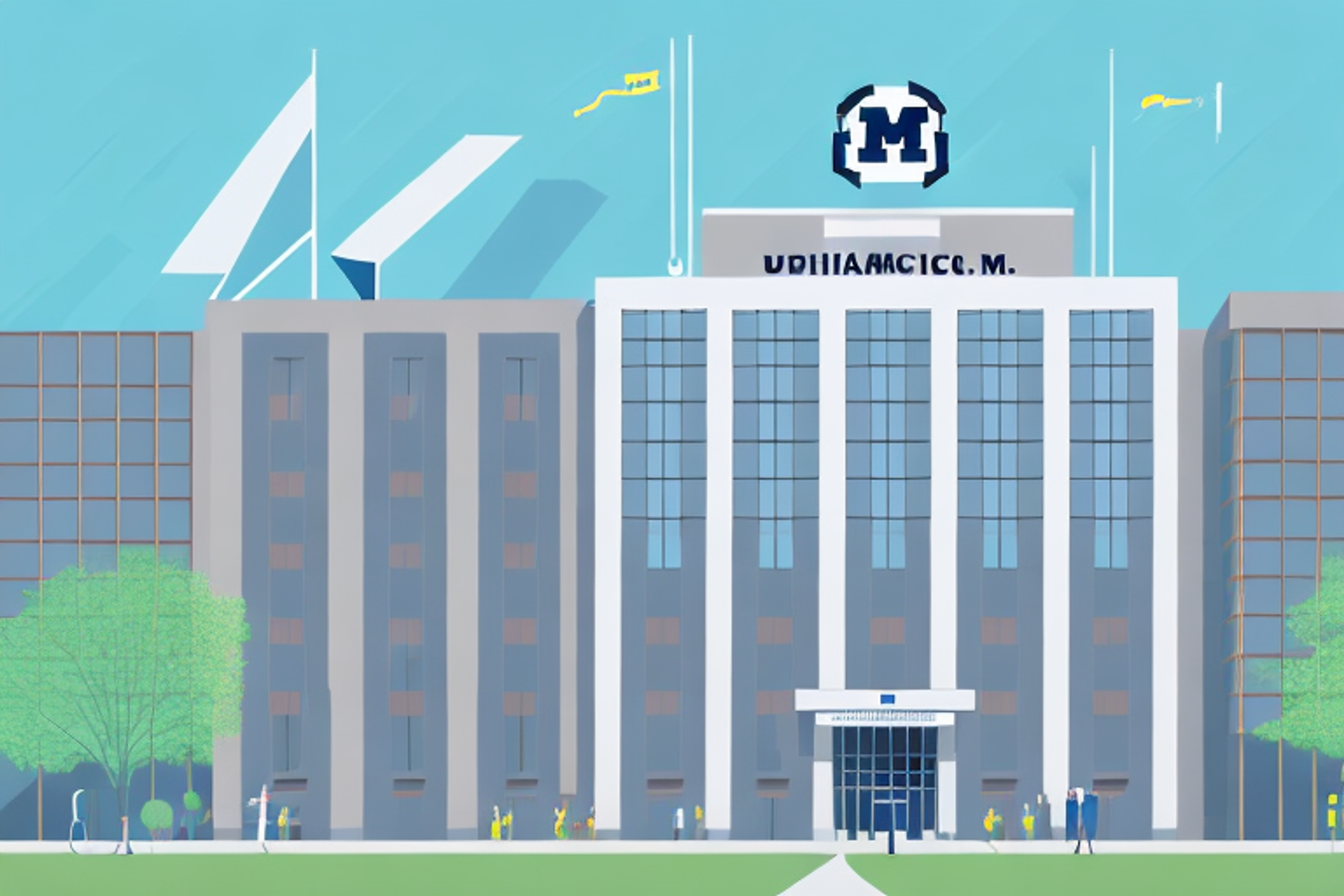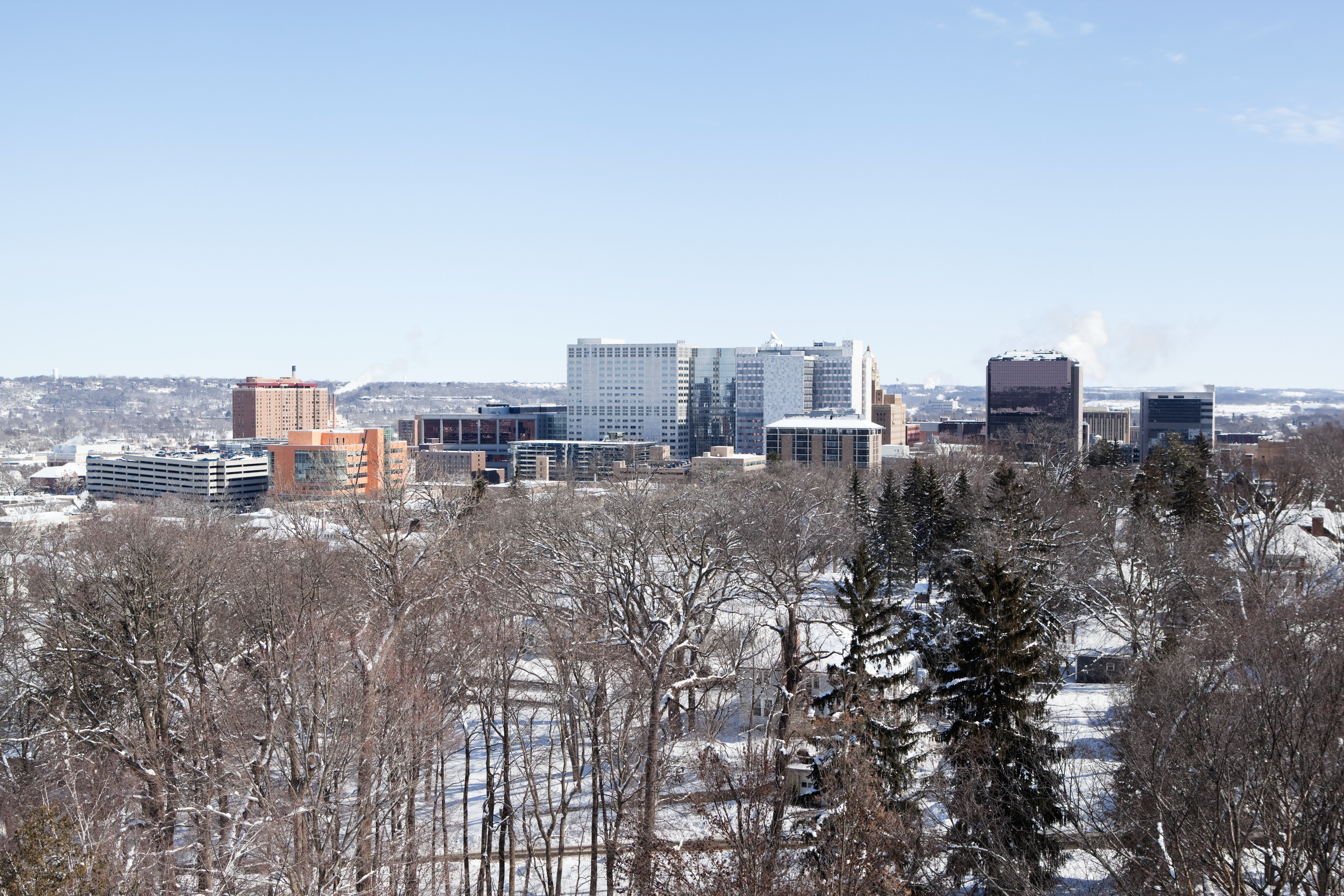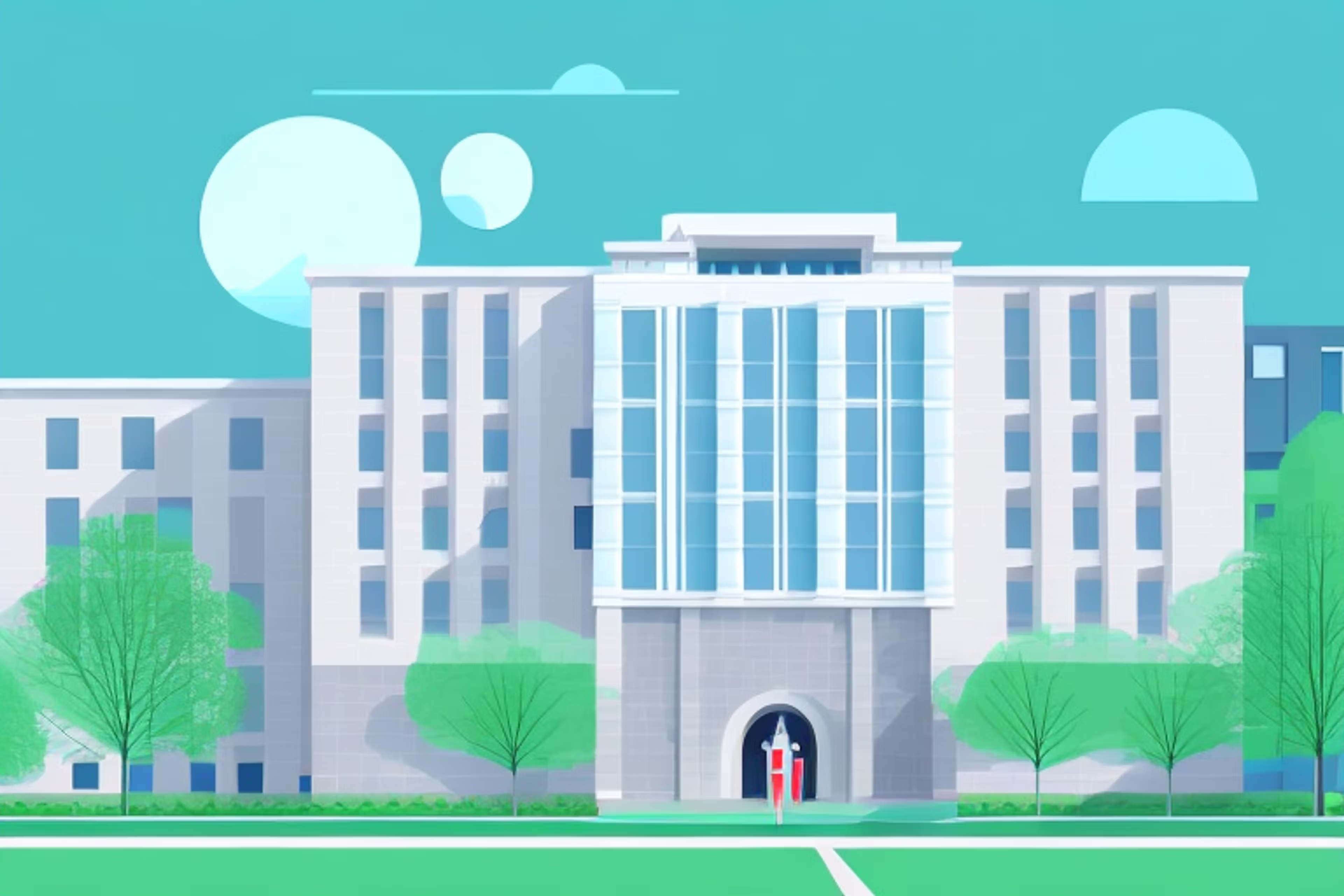University of North Dakota School of Medicine and Health Sciences: Admission Requirements and Application Process
Are you considering applying to the University of North Dakota School of Medicine and Health Sciences? Our article outlines the admission requirements and application process to help you prepare for a successful application.
Posted March 6, 2025

Table of Contents
If you're interested in pursuing a career in medicine, the University of North Dakota School of Medicine and Health Sciences may be the perfect choice for you. Located in Grand Forks, North Dakota, this institution has a strong reputation for its focus on medical education, cutting-edge research, and exceptional faculty. In this article, we'll explore the admission requirements and application process for the University of North Dakota School of Medicine and Health Sciences in detail, giving you all the information you need to determine whether this program is right for you.
Why Choose the University of North Dakota for Your Medical Education?
Before we start talking about the specifics of the admission requirements and application process, let's first discuss some of the reasons why choosing the University of North Dakota School of Medicine and Health Sciences can be a smart decision. One of the biggest strengths of this institution is its focus on experiential learning. In addition to classroom instruction, you'll have ample opportunities to gain hands-on experience through clinical rotations, research projects, and community service activities. You'll also benefit from the school's state-of-the-art facilities and equipment.
Another reason to consider the University of North Dakota is its commitment to providing personalized support to its students. The faculty and staff at this institution are dedicated to helping you succeed in your academic pursuits and understand that everyone learns differently. You'll receive individualized attention and mentorship which will help you build the type of relationship with faculty members that will help you throughout your medical career. Lastly, the University of North Dakota has a strong focus on community service and serving rural communities, which aligns with the university's strong anchor to rural communities in North Dakota.
Admission Requirements for the University of North Dakota School of Medicine and Health Sciences
Now, let's dive into the specifics of what it takes to be admitted to the University of North Dakota School of Medicine and Health Sciences. The admission process is competitive, and the school looks for outstanding students who have demonstrated a strong academic track record. Before applying, you'll need to meet the following requirements:
- Completion of a bachelor's degree from an accredited institution
- A minimum GPA of 3.0 on a 4.0 scale
- Completion of the Medical College Admission Test (MCAT)
- Completion of coursework in biology, chemistry, physics, and English
In addition to these requirements, the admissions committee will also take into account your personal statement, letters of recommendation, and relevant experiences such as research, volunteerism, or clinical experience. It's important to note that meeting the minimum requirements does not guarantee acceptance into the program. You'll need to differentiate yourself from other applicants by demonstrating exemplary qualities in multiple areas.
The Application Process: Step-by-Step Guide
Now, let's discuss the application process for the University of North Dakota School of Medicine and Health Sciences in detail. Here are the steps you'll need to follow:
- Create an account on the American Medical College Application Service (AMCAS) website
- Submit official transcripts from all college-level institutions attended
- Submit MCAT scores
- Submit a personal statement describing why you want to pursue a career in medicine, what motivates you, and what skills and experiences you bring to the table
- Submit letters of recommendation from individuals who can attest to your academic ability and potential in medicine
- If invited, participate in an interview with the admissions committee
The application deadline for the University of North Dakota School of Medicine and Health Sciences is typically in October of the year preceding the academic year in which you wish to enroll.
Tips for Writing a Strong Personal Statement
One of the most important parts of your application is your personal statement. This is an opportunity for you to showcase your writing skills and highlight your passion for pursuing a career in medicine. Here are a few tips to help you write a strong personal statement:
- Start early: Don't wait until the last minute to start working on your personal statement. Take time to brainstorm ideas and review different drafts of your statement before submitting your final version.
- Show, don't tell: Instead of just stating that you're passionate about medicine, give concrete examples of experiences that have solidified your interest in this field.
- Be authentic: Don't try to write what you think the admissions committee wants to hear, be true to yourself and show what makes you unique.
- Edit, edit, edit: Make sure to have someone review your personal statement to ensure that it is polished and free from errors.
Preparing for Your Medical School Interview: What to Expect and How to Succeed
If selected, you'll need to participate in a medical school interview. This can be a nerve-wracking experience, but with proper preparation, you can increase your chances of success. Here are a few tips to keep in mind when preparing for your interview:
- Research the institution: Make sure you have a solid understanding of the University of North Dakota School of Medicine and Health Sciences and its mission before your interview. Prepare some questions to ask that show your interest in the school and what it has to offer.
- Practice with a mock interview: Get a friend or family member to help you practice your interview skills. Review common interview questions and prepare your answers in advance.
- Dress to impress: Dress professionally and make sure your appearance is neat and clean.
- Show your personality: During the interview, try to relax and be yourself. Show the admissions committee who you are and how you will contribute to the medical community.
Understanding the MCAT: What You Need to Know and How to Prepare
The Medical College Admission Test (MCAT) is a standardized test used to measure your readiness for medical school. The exam covers topics in biology, chemistry, physics, psychology, and sociology. Here are a few tips to help you prepare for the MCAT:
- Register for the exam as early as possible to ensure available testing dates
- Develop a study plan that includes practice tests in addition to content review
- Use a variety of study resources, such as online videos, textbooks, and flashcards
- Take care of your physical and mental health during the study process, as prolonged studying can be demanding.
Financial Aid Options for Medical Students at the University of North Dakota
Pursuing a degree in medicine can be a significant financial investment. Fortunately, the University of North Dakota School of Medicine and Health Sciences offers various financial aid options. Here are a few of the most common types of financial aid:
- Scholarships: The school offers various scholarships to help offset the cost of tuition and other expenses.
- Grants: Students may be eligible for federal or state grant programs based on financial need.
- Federal student loans: Students can apply for various federal student loan programs to help cover the cost of education. Keep in mind that these loans must be repaid with interest.
- Work-study programs: Eligible students may be able to participate in work-study programs, which allow them to earn money while gaining valuable work experience.
Student Life at the University of North Dakota School of Medicine and Health Sciences
While the focus at UND Medical School is obviously on academic excellence and preparing you for a career in medicine, there are also many resources available to help you make the most of your student experience. From extracurricular activities to on-campus housing, here are a few aspects of student life you may want to explore:
- Student organizations: There are many student organizations at UND Medical School, including the Student Government Association, Alpha Omega Alpha Honor Medical Society and the American Medical Women’s Association.
- Campus facilities: The University of North Dakota School of Medicine and Health Sciences operates out of two buildings--the original historic building and a brand-new eight-story structure, which is home to the latest facilities and equipment. There are Anatomy and Physiology labs, study groups, outdoor areas, restaurants, and recreational facilities.
- Campus events: The University of North Dakota School of Medicine and Health Sciences hosts various events, including guest lectures, workshops and annual auctions, which can be a great way to connect with faculty or peers and to learn about different aspects of the medical profession, networking, and research
Career Opportunities After Graduating from the University of North Dakota School of Medicine and Health Sciences
Graduating from the University of North Dakota School of Medicine and Health Sciences can lead to a wide range of career opportunities in various medical fields. Here are a few examples of the types of roles that you may be able to pursue:
- Physician: Many UND School of Medicine graduates go on to become physicians in various specialties, from family medicine to surgery.
- Researcher: Graduates can pursue careers in research, conducting studies and developing new treatments or cures for diseases.
- Administrator: Some graduates find roles in healthcare administration, managing medical facilities or overseeing public health programs.
Faculty Spotlight: Meet Some of the Professors at UND Medical School
The faculty members at the University of North Dakota School of Medicine and Health Sciences are highly qualified and dedicated to teaching and mentorship. Here are a few examples of some of the professors you may encounter during your time at this institution:
- Dr. Joshua Wynne: Dr. Wynne is the Dean of the University of North Dakota School of Medicine and Health Sciences and a board-certified obstetrician-gynecologist. He is an advocate for rural healthcare and has served in various leadership roles throughout his career.
- Dr. Mardi Nilsen: Dr. Nilsen is the Assistant Professor and Director of Behavioral Health Education at UND Medical School. She focuses on the integration of mental health services with primary care and has received several awards for her work in this area.
- Dr. Suresh Antony: Dr. Antony is a professor of pathology at UND Medical School and has expertise in various aspects of laboratory medicine. He is also involved in various research projects, focusing on topics such as cancer and cardiovascular diseases.
Research Opportunities at UND Medical School
The University of North Dakota School of Medicine and Health Sciences has a strong focus on research, and students have ample opportunities to get involved in various projects. Here are a few examples of the types of research taking place at this institution:
- Alzheimer's Disease: UND Medical School has a dedicated center for Alzheimer's Disease Research that aims to improve the lives of those who suffer from this condition. Students can get involved in various research projects in this area, including clinical trials and drug development initiatives.
- Rural Health: Given the school's focus on serving rural communities, there is a strong emphasis on rural health research. Students can work with faculty members on projects related to healthcare delivery in rural areas, health disparities, and mental health access.
- Cancer Research: Through partnerships with various organizations, UND Medical School has several ongoing cancer research projects, focusing on topics such as cancer prevention, diagnosis, and treatment.
Collaborative Learning Environment at UND Medical School
Finally, it's important to note that the University of North Dakota School of Medicine and Health Sciences is a highly collaborative learning environment. You'll have ample opportunities to work with faculty members, peers, and healthcare professionals to develop your skills and knowledge. The emphasis on collaboration and teamwork is an important aspect of medical education, as it will prepare you to work effectively in different clinical settings.
In conclusion, the University of North Dakota School of Medicine and Health Sciences is an exceptional institution that provides a comprehensive medical education experience to its students. Its commitment to hands-on learning, personalized support, and cutting-edge research make it a one-of-a-kind program for aspiring medical professionals. If you're looking to pursue a career in medicine, the University of North Dakota School of Medicine and Health Sciences is a program that's definitely worth considering.










